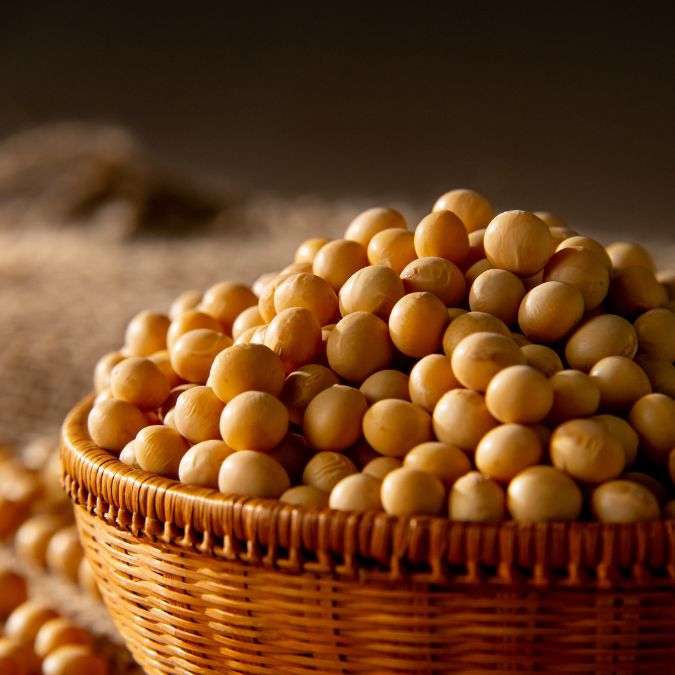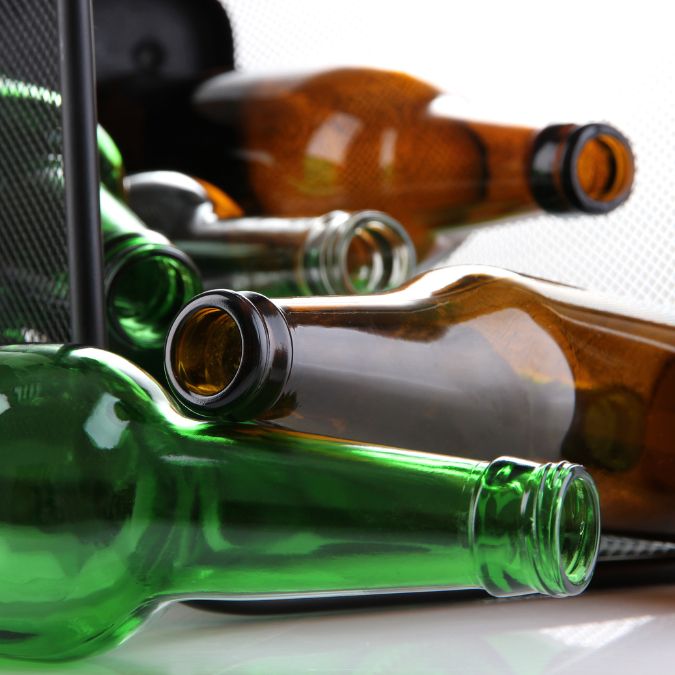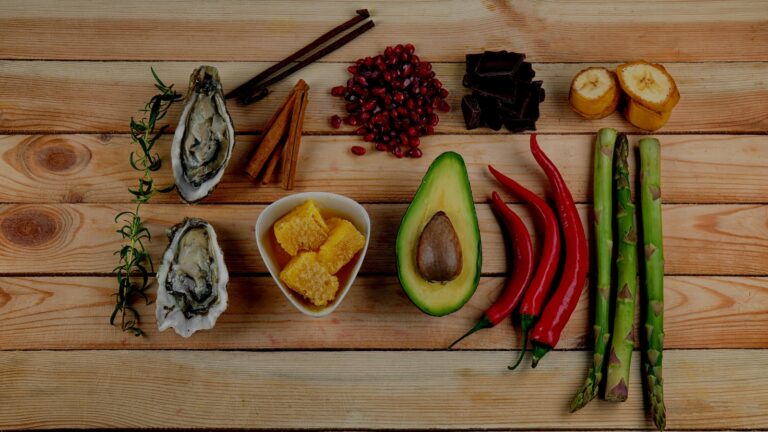When you’re working on optimising or maintaining your testosterone levels, you become increasingly aware of all the things you should be avoiding. Is soy one of them? If you take a soy protein shake, will your testosterone levels take a hit?
We love soy. It’s a healthy whole food from the legume family, with plentiful benefits. But our bodies love testosterone more.
Testosterone is a crucial hormone that everyone produces, although men need it much more. When we’re low on testosterone, it can make quite the negative impact on us both physically and mentally.

Physically, we’re talking an inability to improve in athleticism and strength, or to build muscle. Within, you’ll suffer reduced blood flow and energy levels. In your sex life, you’ll suffer a lower libido and potentially erectile dysfunction.
In yourself, you’ll feel fatigued, with little desire or motivation. As a knock-on effect, low testosterone can take a swipe at your confidence, leading to a downward spiral back to motivation and being willing to live a more active lifestyle.
So it’s clear why so many of us are cautious of anything that may further harm our testosterone levels, especially if we’ve been working hard to optimise them.
For this reason, soy often finds itself in the bad books. This is because it’s more famously known for its high concentration of isoflavones – a type of oestrogen, which is more commonly referred to as the ‘female’ hormone.
Well, it’s time soy had justice. No, soy does not lower testosterone. Those brilliant soy protein shakes you’ve been avoiding, even though they’re excellent for maintaining a solid micronutrition intake and healthy muscle mass? Sadly a mistake.
We get it – when you’re working on your T-levels, you naturally avoid anything that’s linked with oestrogen. There’s no need to avoid soy though, as confirmed by Reproductive Toxology’s 2021 meta-analysis.
Soy and Reproductive Toxicology
It’s true that soy does contain a high concentration of isoflavones, which is a type of plant oestrogen called phytoestrogen.
This is similar to human oestrogen, but its effects are much weaker. Still, the link has caused many to believe that by consuming soy, you’d raise your oestrogen levels, which would diminish your testosterone output.
But the facts are much different, as proven by not one study, by 38 thorough clinical studies that looked at how soy/isoflavones affect hormone levels.
The 2021 meta-analysis from Reproductive Toxology found that soy/isolflavones had no noted effects on neither oestrogen nor testosterone in men. The phytoestrogens simply didn’t show any altercations or changes in hormone production.
The Benefits of Soy
This is great news, because soy is a golden nugget of benefits that we really shouldn’t waste. Soy foods – such as soy milk, tofu, soybeans and also soy protein shakes – are rich in nutrients including magnesium, potassium, fibre, high-quality protein, and B vitamins.
Soy is also at full capacity with all nine essential amino acids, making it a ‘complete protein’. It’s also understood that this legume can reduce the risk of a number of health problems including bone health, cardiovascular disease, coronary heart disease, stroke, and some cancers.
So what does lower testosterone?

So we’ve safely established that there’s no reason to avoid soy in our diets, which will be of particular relief to those of us on a plant-based diet.
Instead, we should be aware of the many other things that can greatly inhibit how much testosterone we can produce. Unfortunately there are a number of things we can’t control. For example, age is the most inevitable factor. When we reach out thirties, our testosterone levels begin to naturally decline each year by a further 1%.
Life itself can throw its curveballs, too. Medical issues such infection to the testes (orchitis), chemotherapy, radiation exposure, trauma, and inflammatory conditions such as sarcoidosis can generally lower our testosterone levels. Head trauma can have a big impact on how much testosterone you can produce if the pituitary gland is damaged.
Other medical conditions and illnesses that sadly go against testosterone levels include:
- Metabolic disorders like hemochromatosis
- Pituitary gland dysfunction or tumours
- Renal (kidney) failure
- Kallmann Syndrome – where a gland in the brain that controls hormone function (the hypothalamus,) develops abnormally
- HIV/AIDS
- Hypothyroidism
- XXY syndrome, or Klinefelter syndrome – a genetic condition where men are born with an extra copy of the X chromosome
- Sleep apnoea
Some medications can affect testosterone output too. Some steroid prescription medication is included here, as well as opioids, and also certain hormonal treatments, like those used to fight cancer.
Of course, there isn’t much we can do to change these things. We also have to look at the advantages that outweigh the risks when it comes to medication, which should always, always be discussed with your GP.
Now we turn to the things we can control in our lives – the aspects we have a choice over, and which can be altered to help support our bodies in producing this wonderful hormone us men in particular thrive on. It all revolves around a healthy, active, sensibly controlled lifestyle.
If you’re overweight, it’s much more likely your testosterone will be on the low side. Drastically losing excessive weight can also have an impact.
Drinking excessively, as well as drug abuse, can lead to diminished testosterone levels, notably with the use of anabolic steroids, to the point where medical intervention would be required.
If you suffer from chronic stress and depression, this sadly can also add to T-levels being dampened. Unfortunately, we know all too well that such conditions can lead to a poor sleep routine – this in itself can also target testosterone.
Physical and muscular activity also makes a big contribution. Low muscle mass and sedentary lifestyles are commonly associated with low testosterone levels. And when you’re producing lesser amounts of testosterone, you’ll find it harder to build muscle mass.
How Do You Know If You Have Low Testosterone Levels?
There are some common symptoms that indicate your testosterone levels may be on the low side. A low sex drive and/or erectile dysfunction and poor sexual performance is a relatively clear indicator.
Other symptoms include a loss of muscle mass or inability to gain muscle mass even with training, and a loss of strength and athletic ability.
You may be irritable, with a low mood and maybe symptoms of depression, with no desire or motivation. You may have notice decreased concentration and memory.
If you’re experiencing increased levels of body fat than normal, or more weight around your breasts, it’s another indication that your testosterone levels may need some attention.
If you’re concerned, you can speak with your GP to identify the cause. Tests can be taken to identify your hormonal output. If you’re medically low on testosterone, you may need medical intervention. If you’re simply on the lower end of the healthy spectrum, this is common ground, where you’ll need to make lifestyle changes.
What Can You Do To Increase Testosterone?
All these lifestyle choices are in your control. When you live an active lifestyle supported with a healthy diet, you’ll alleviate some of the side effects exacerbated by low testosterone, and open a floodgates that allow your body to naturally produce more testosterone.
Resistance training is particularly beneficial when it comes to encouraging your T-levels. Weightlifting, boxing, swimming and yoga have all been shown to help build lean muscle, which will lead to improved testosterone output.

A healthy diet rich in protein and healthy fats will help you recover fully after your workout (soy included!), and will also contribute to your T-levels.
Pay attention to how stressed you are, too. High cortisol levels directly impact testosterone. The more stressed you are, the less testosterone you’ll be producing.
Take stock of what’s causing you stress, and how you can alleviate it – whether that’s through considering a new job, paying attention to how you schedule your day, or practising calming exercises such as deep breathing, Pilates, and meditation.
Reduce your alcohol consumption, which will further exacerbate life’s challenges as well as directly impact your health and testosterone output. The use of anabolic steroids will also destroy your ability to produce natural testosterone.
There are plenty of natural testosterone boosters that can actively support your body’s ability to produce its own testosterone. They include some highly effective and proven ingredients such as D-aspartic acid, Vitamin D, Magnesium, DHEA, and Tribulus Terrestris. TestoPrime often takes the top spot in our Best Testosterone Booster guides.
Verdict
The jury has spoken (clinical research), and justice has been served to soy – it does not have a negative impact on your testosterone levels. In fact, it’s a very healthy addition to your diet and even your protein shake, and you’d be wise to include it as opposed to avoiding it.
Forget about your soy concerns. What you must focus on is what we’ve mentioned above: implementing a healthy, active lifestyle and the use of natural testosterone boosters. Doing these things will actively help you achieve optimal testosterone levels, and all the benefits that come with it.
Remember to always consult with your GP if you’re concerned about your hormone output.







